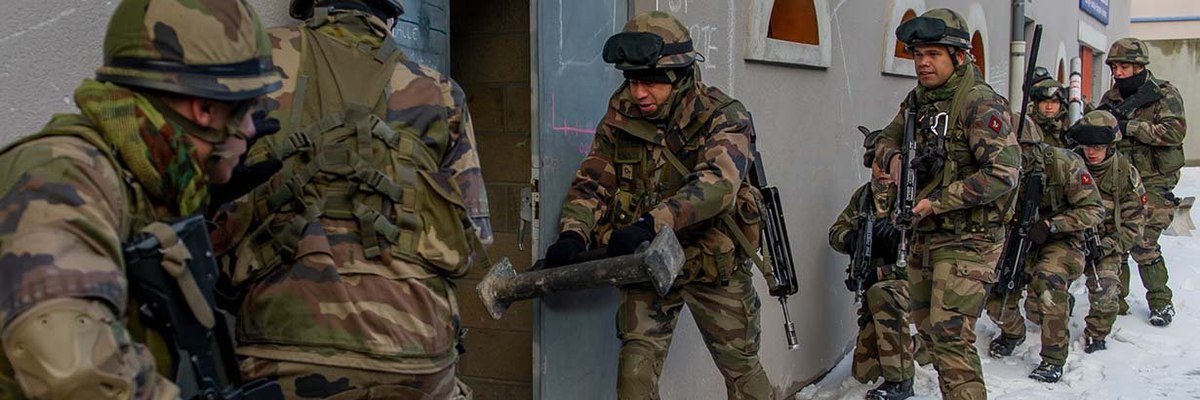The role of NATO is likewise seen as more important than it was, and in many nations people think they have been underinvesting in their armed forces
The Russian invasion of Ukraine has caused many people across Europe to reassess their views on defence policy, according to data from a recent YouGov poll conducted with the European University Institute for the 2022 State of the Union conference in Florence.
Support increases for an integrated European army
The results show that support has risen for an integrated European army since last year.
The largest jump has been in Britain, with a 10pt increase, although support remains low at just 34%.
There has also been a significant increase in Sweden and Finland, with both countries experiencing a 9pt shift in support to 48% and 53% respectively.
Other countries have become less enamoured with the idea, however. Opinion in Greece has declined the most, dropping 8pts to 55%. This is despite the Greek prime minister branding the idea of a European army “a mature proposal” in September 2021, following the signing of a multibillion-euro defence deal with France which French president Emmanuel Macron described as “an audacious first step towards European strategic autonomy”.
Hungary too has seen a 5pt drop in support for a European army, to 50%, while support in Romania likewise has dropped 4pts to 51%.
Nevertheless, of the 17 countries surveyed, there is net support for an integrated European army in all bar Britain, the only non-EU member surveyed, which is split 34% in support to 35% opposed.
NATO seen as more important for European defence than it was prior to Russian invasion of Ukraine
While an integrated EU army remains a pipe dream for the time being, there is already a continent-spanning defence organisation: NATO. The Russian invasion of Ukraine has prompted substantial numbers of Europeans to revisit their perceptions of the alliance’s necessity, with notably more people now saying that NATO is important to their national defence, and in particular saying it is “very important”.
Nowhere has this figure increased more than in Finland, itself not a NATO member but widely expected to apply to join the alliance shortly. The number of Finns saying the alliance is important to the nation’s defence has jumped 26pts since 2021, from 45% to 72%. The entirety of this shift has been for “very important”, which is up to 39% from 14%, with the number saying “fairly important” remaining constant at 32%.
In Sweden, also expected to apply for NATO membership at the same time as Finland, there has been a more modest but still sizeable increase of 10pts, from 54% to 63%.
There have also been sizeable increases of 11-12pts in the UK, France, Germany, Hungary and Spain.
Overall, Danes, Lithuanians and Poles are the most likely to consider NATO to be important to their national defence, at 80-81%.
Defence spending
While NATO is seen as vital to European defence, only eight of the alliance’s 30 members have been meeting the requisite 2% of GDP spending target on their armed forces the alliance requests.
In Denmark and Sweden in particular, belief that the country has been spending too little on defence has risen significantly. Half of Swedes (51%) now think defence spending has been too low, up 15pts from 36% in 2021
One in three Danes (36%) say the same, up 19pts from last year.
Swedes are also the most likely of all countries surveyed to consider spending to be too high, followed closely by the Dutch, at 41% (itself up 12pts on the year before).
Greece comes bottom of the list, with only 14% thinking that defence spending has been too low, from 11% the year before. NATO estimates that Greece spends more of its budget on the armed forces as a percent of GDP, at 3.59% in 2021.
Photo: Armée de Terre









